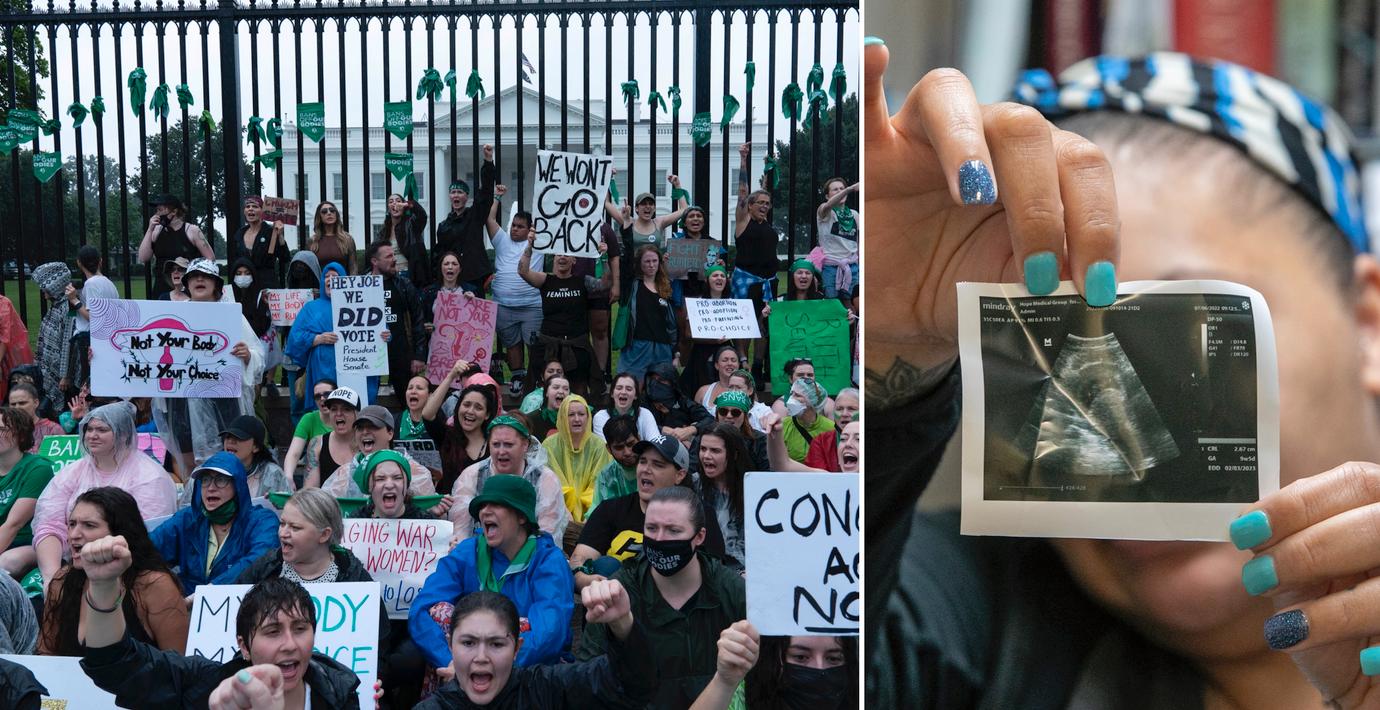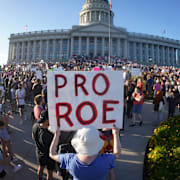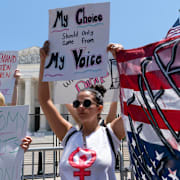Wikipedia (en)
Roe v. Wade, 410 U.S. 113 (1973), was a landmark decision of the U.S. Supreme Court in which the Court ruled that the Constitution of the United States conferred the right to choose to have an abortion. The decision struck down many federal and state abortion laws, and it caused an ongoing abortion debate in the United States about whether, or to what extent, abortion should be legal, who should decide the legality of abortion, and what the role of moral and religious views in the political sphere should be. The decision also shaped debate concerning which methods the Supreme Court should use in constitutional adjudication.
The case was brought by Norma McCorvey—under the legal pseudonym "Jane Roe"—who, in 1969, became pregnant with her third child. McCorvey wanted an abortion but lived in Texas, where abortion was illegal except when necessary to save the mother's life. Her lawyers, Sarah Weddington and Linda Coffee, filed a lawsuit on her behalf in U.S. federal court against her local district attorney, Henry Wade, alleging that Texas's abortion laws were unconstitutional. A special three-judge court of the U.S. District Court for the Northern District of Texas heard the case and ruled in her favor. The parties appealed this ruling to the Supreme Court.
In January 1973, the Supreme Court issued a 7–2 decision in McCorvey's favor holding that the Due Process Clause of the Fourteenth Amendment to the United States Constitution provides a fundamental "right to privacy", which protects a pregnant woman's right to an abortion. The Court also held that the right to abortion is not absolute and must be balanced against the government's interests in protecting women's health and prenatal life. The Court resolved these competing interests by announcing a pregnancy trimester timetable to govern all abortion regulations in the United States. The Court also classified the right to abortion as "fundamental", which required courts to evaluate challenged abortion laws under the "strict scrutiny" standard, the most stringent level of judicial review in the United States.The Supreme Court's decision in Roe was among the most controversial in U.S. history. In addition to the dissent, Roe was criticized by some in the legal community, including some in support of abortion rights who thought that Roe reached the correct result but went about it the wrong way, and some called the decision a form of judicial activism. Others argued that Roe did not go far enough, as it was placed within the framework of civil rights rather than the broader human rights. Anti-abortion politicians and activists sought for decades to restrict abortion or overrule the decision; polls into the 21st century showed that a plurality and a majority, especially into the late 2010s to early 2020s, opposed overruling Roe. Despite criticism of the decision, the Supreme Court reaffirmed Roe in its 1992 decision, Planned Parenthood v. Casey. Casey overruled Roe's trimester framework and abandoned its "strict scrutiny" standard in favor of an "undue burden" test.In June 2022, the Supreme Court overruled Roe in Dobbs v. Jackson Women's Health Organization on the grounds that the substantive right to abortion was not "deeply rooted in this Nation's history or tradition", nor considered a right when the Due Process Clause was ratified in 1868, and was unknown in U.S. law until Roe. This view was disputed by some legal historians and criticized by the dissenting opinion, which argued that many other rights—contraception, interracial marriage, and same-sex marriage—did not exist when the Due Process Clause was ratified in 1868, and thus, by the Dobbs majority's logic, were not constitutionally protected. The decision was supported and opposed by the anti-abortion and abortion-rights movements in the United States, respectively, and was generally condemned by international observers and foreign leaders.




